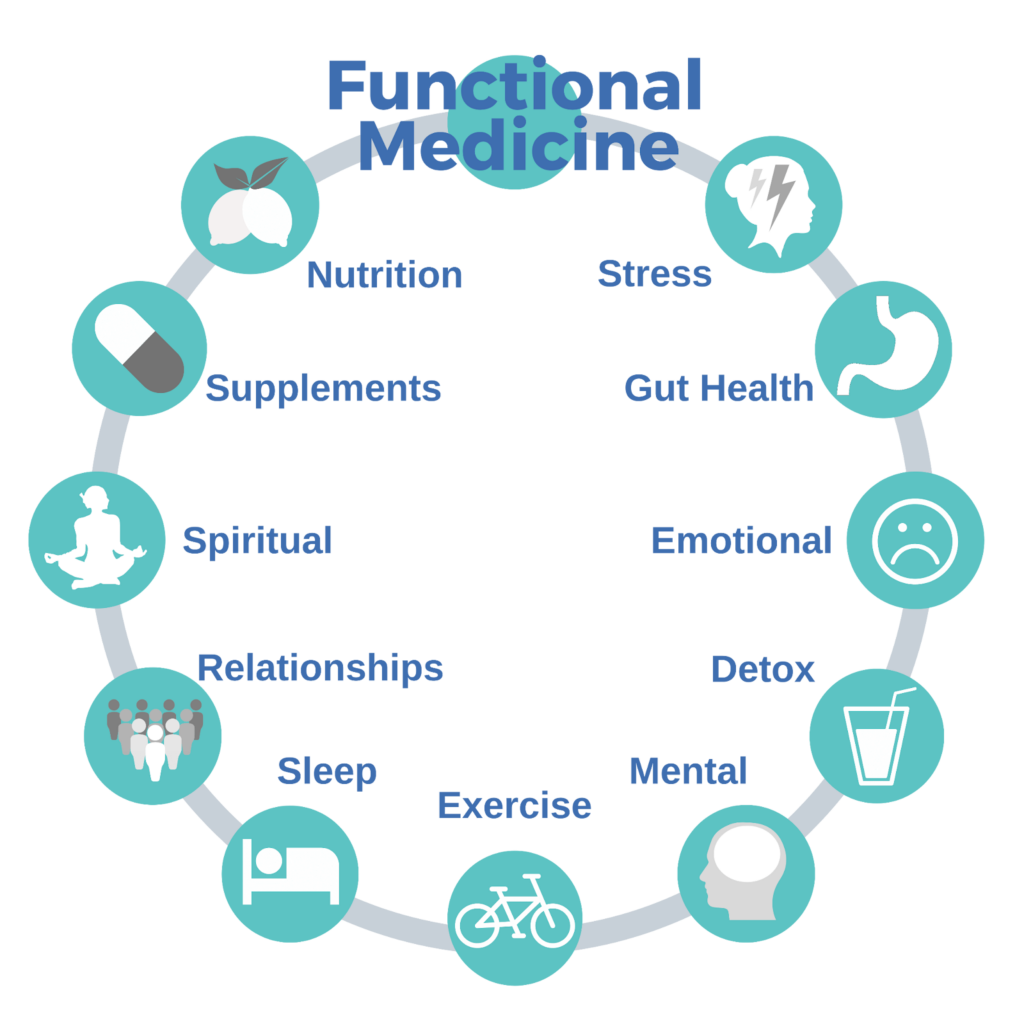Exploring the Key Benefits of Functional Medicine
Functional medicine seeks to identify and resolve the cause of disease rather than merely treating the symptoms which is the conventional view of medicine. Because too much care is focused on the diagnosis of disease for treatment with medications, little emphasis is placed on the general health of the individual. This leads to enhanced quality of life as there are lasting solutions for the issues. Some of its advantages will be discussed below. How does functional medicine promote overall wellness? Functional medicine promotes overall wellness by addressing the root causes of health issues through personalized care. It focuses on lifestyle, nutrition, and mental health to achieve balance. By optimizing these aspects, it improves physical and emotional well-being, leading to a healthier, more fulfilling life. Patients experience long-term health benefits. Functional medicine has broad parameters where diet, exercise, stress, and genetic makeup among other factors are all embraced. One can address these factors causing the problems and formulate specific strategies to harness the inherent healing capabilities of a person’s body. This approach works to prevent a resurgence of other diseases and improves energy, mood, and vigor which is indispensable for wellness. What are the benefits of functional medicine for chronic conditions? The benefit of functional medicine for chronic conditions is, that it focuses on root causes like inflammation, hormonal imbalances, and lifestyle factors. It offers personalized treatments, including dietary changes and stress management. This approach reduces symptoms, improves health outcomes, and provides a sustainable strategy for managing chronic illnesses over the long term. Chronic conditions are always multi-faceted and it is not easy to determine a single cause of the condition. Functional medicine interprets these factors with thorough tests and customized treatment approaches. It fixes issues like gut health, nutrition, and mental health which can help manage symptoms and improve quality of life for the patient with persistent treatment to get relief. Does functional medicine improve mental health? Functional medicine improves mental health by addressing underlying factors like nutrient deficiencies, hormonal imbalances, and lifestyle stressors. It incorporates dietary adjustments, exercise, and stress management into care plans. This holistic approach can enhance mood, reduce anxiety, and improve cognitive function, leading to better mental health outcomes. There are factors related to physical health that can also affect mental health, gut health and nutrient intake for instance. Practitioners of functional medicine look at these factors and offer intervention like diets rich in Omega 3, and stress alleviation methods. These targeted approaches create balance within the levels of neurotransmitters, and also decrease inflammation while enhancing nutrition to the brain leading to positive mental health. How does functional medicine support preventive care? Functional medicine supports preventive care by identifying potential health issues early through comprehensive assessments. It focuses on lifestyle modifications, such as diet and exercise, to prevent the onset of diseases. This proactive approach enhances the body’s resilience, reducing the risk of future health problems and promoting long-term wellness. Functional medicine assesses and validates risk factors such as micro-nutrient deficiencies, hormone imbalances, genetic risks, etc. Then these practitioners come up with particular measures to shield the patient from said risks and include lifestyle alterations that enhance the body’s immunity. This approach is not only helpful in preventing diseases but also in improving health further. Can functional medicine enhance energy and vitality? Functional medicine enhances energy and vitality by addressing root causes like poor nutrition, hormonal imbalances, and stress. It uses personalized strategies, including dietary adjustments and lifestyle changes, to restore balance. This holistic approach boosts energy levels, improves physical performance, and fosters a more active and fulfilling lifestyle. Feeling fatigued can be an indication of some medical conditions, for instance adrenal fatigue, or a lack of certain nutrients. Functional medicine specialists address these issues by conducting extensive examinations. They assist their clients in rediscovering their usual energy by improving food, hormone treatment, and dealing with stress levels in the body, thus increasing their vitality. What role does nutrition play in functional medicine? Nutrition plays a central role in functional medicine, as it focuses on using food to support the body’s healing processes. Practitioners assess dietary habits and recommend personalized nutrition plans. This approach addresses deficiencies, balances hormones, and reduces inflammation, contributing to improved overall health and well-being. Functional medicine emphasizes the idea that food is also accompanied by curative purposes and seeks to address the underlying causes of disease. Physicians determine the particular nutrition requirements of a patient and prepare custom-made strategies to deliver meals that are high in nutrients and vitamins. Understanding factors such as inflammation or metabolism accordingly enhances how optimal eating patterns can improve one’s health both physically and mentally. How does functional medicine offer personalized treatment? Functional medicine offers personalized treatment by conducting comprehensive assessments, including lifestyle, genetics, and environmental factors. It creates tailored care plans focusing on root causes rather than just symptoms. More so, each patient is treated and their health conditions and prescriptions derived optimally. While conventional medicine employs standardized treatment approaches, functional medicine investigates a patient’s biological and lifestyle variations. Clinicians assess the profile of each individual, paying attention to diet, stress, and other variables in the environment to develop plans. This comprehensive plan is very precise so as to correct particular defects and states that the remedies for such injuries and conditions are most suited to the patient’s health targets and status. Wrapping Up, Functional medicine also has its advantages and regards all health issues as emanating from one or more root causes and effectively tackles them. Health nurtured through functional medicine’s four aspects including diet, social interaction, mood support, and exercise is health that remains with the individual for long. This comprehensive method not only treats health issues as they arise but also turns addressees into individuals who are healthy, active, and well-balanced.









